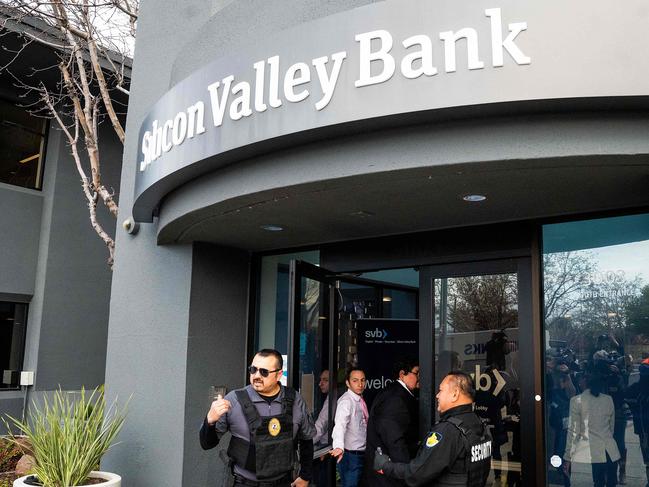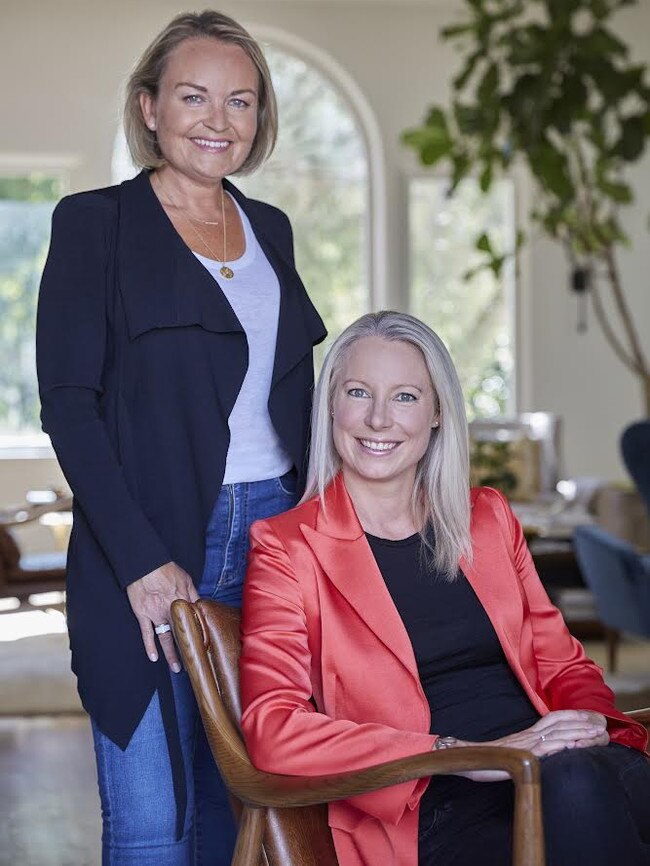Silicon Valley Bank collapse leaves Australian start-ups in limbo
The Silicon Valley Bank collapse has threatened to destroy a key loophole for Australians in the US. Here’s how.
Companies
Don't miss out on the headlines from Companies. Followed categories will be added to My News.
The Silicon Valley Bank (SVB) meltdown poses a risk to Australian companies planning to expand into the United States, according to a California venture capital fund that specialises in Aussie tech start-ups.
Marisa Warren, who heads ALIAVIA Ventures with fellow Aussie ex-pat Kate Vale, told News Corp Australia that SVB’s growth in Australia over the past decade made it the go-to bank for start-ups expanding to the United States, as it doesn’t require a local domicile address to open an account.
The lack of a local presence, required by the major banks, removes the need for an immediate immigration visa required to live and work in the United States and fast-tracks growth plans in the country.
“That’s why they were so popular in Australia, because you had founders thinking, ‘I’m ready to expand to the US but I’m not ready to move there and have boots on the ground’,” she said.
While depositors like ALIAVIA Ventures dodged a bullet by the US bailout at the opening of markets on Monday, US time, the crisis exposed a larger risk to the banking system that still has venture capitalists and founders “on tenterhooks”.

ALIAVIA ventures, which has invested in eight companies in total, including five Australian companies, four of which have plans to expand to the United States, is in the process of evaluating the far-reaching impact of the bank’s downfall.
“We still don’t know what’s going to be happening with Silicon Valley Bank. Is it going to be sold to somebody, and if so, who, and are they going to keep its same strategies and requirements for Australian companies,” Ms Warren said.

“So for those Aussie founders, what are some of those other options out there if they want to expand to the US and do they have to physically have boots on the ground to open accounts. So that’s a question that still needs to be answered.”
Treasurer Jim Chalmers said in a statement the government was aware that “some Australian firms have been impacted” and that they were working with regulators and the tech sector to better understand the implications for the industry.
Among the most well-known Australian tech companies to announce exposure to the collapse was Canva, which said the majority of their cash was not held with SVB at the time of the bank run.
A spokesman confirmed to News Corp Australia that Canva was among the bank’s depositors given full access to the entirety of their funds in measures announced by US President Joe Biden.
“We’re fortunate this hasn’t had an impact on our day-to-day operations,” the spokesman said in an email.
Silicon Valley Bank provided banking services like loans, debt and checking accounts to start-ups based in Australia, attracting them with offers of low or no account and wire transfer fees, as well as highly-competitive exchange rates.
When the concern spread across Silicon Valley last week, Ms Warren said ALIVIA Ventures wired its funds out of SVB on Thursday (local time) but that the bank blocked the transaction before the money moved.
A customer with the bank since 2017, Ms Warren said they were lucky none of their eight investment companies had cash in SVB when the bank run hit.
US federal regulators stepped in to ensure depositors had access to their funds at SVB, while promising to cover deposits of other financial institutions.
Ms Warren said the sudden downfall came in the midst of a shift in the US among investors from a “growth at all costs business model” to an environment where only great companies, not good ones, were being funded.
“The VCs and start-ups just reacted so insanely quickly,” she said.
“As a fund manager, I have a fiduciary responsibility to my investors to act and then also to make sure for our portfolio companies. So it’s that really tough spot. You’re damned if you do [withdraw funds] and damned if you don’t.
“But if you don’t do it and end up losing all your cash, then you haven’t acted responsibility”





